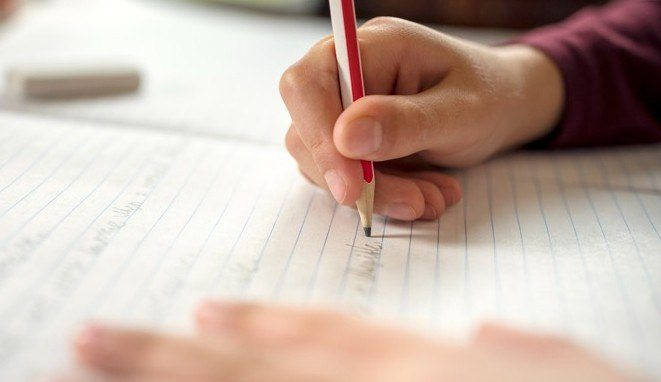What is Evaluation in Early Childhood Edaucation?
Early childhood is a critical time for development, with children rapidly gaining cognitive, social, and emotional skills. To support each child’s growth, educators use various assessment tools that provide insights into their progress. But what exactly does evaluation in early childhood education involve, and why is it so vital? This guide explores the key aspects of early childhood evaluation.
TL;DR:
Evaluation in early childhood education is the process of observing, documenting, and analyzing children’s development to identify individual needs, inform instruction, track progress, and communicate with families. Methods include observations, checklists, portfolios, and occasionally standardized assessments. Teachers and parents both play vital roles, with evaluations guiding personalized learning and early interventions when needed. Challenges include developmental variability, cultural differences, and limited resources, while ethical considerations require confidentiality, consent, and cultural sensitivity. When applied thoughtfully, evaluations support children’s growth, foster collaboration, and help create effective, individualized educational experiences.
Book Your Child Development Evaluation in NYC Today!

Defining Evaluation in Early Childhood Education
Evaluation in early childhood education is a structured process of collecting and analyzing information about a child’s development and learning. This process involves observing, documenting, and interpreting behaviors, skills, and knowledge. Unlike standardized testing in older grades, early childhood evaluations are typically more informal and rely heavily on observation.
The Purpose of Evaluation in Early Childhood
The primary goals of evaluation in early childhood education are to:
- Identify individual needs: Assessments help educators recognize each child’s unique strengths and areas where additional support might be needed.
- Inform instruction: By understanding a child’s developmental level, educators can tailor their teaching strategies to better meet individual needs.
- Monitor progress: Evaluations track a child’s development over time, highlighting areas of growth and identifying opportunities for improvement.
- Communicate with families: Evaluations serve as a tool for sharing insights about a child’s progress with their families, fostering collaboration between home and school.
Common Methods of Evaluation in Early Childhood
Several methods are commonly used to evaluate children in early childhood settings:
- Observations: Watching children during play, group activities, and one-on-one interactions offers valuable insights into their development and learning processes.
- Checklists and rating scales: These tools allow educators to monitor specific skills and behaviors, such as language development, social interactions, and fine motor skills.
- Portfolios: Collections of a child’s work over time, portfolios provide a comprehensive view of their growth and achievements.
- Standardized assessments: While less common in early childhood, standardized tests can sometimes be used to compare a child’s performance with that of their peers.
The Role of Teachers and Parents in the Evaluation Process
Both teachers and parents play essential roles in the evaluation process. Teachers conduct assessments and use the results to create individualized education plans. Parents offer valuable insights into their child’s behavior and development outside of the classroom, enabling a more holistic approach to the child’s education.
Challenges in Early Childhood Evaluation
Evaluating young children comes with unique challenges, including:
- Variability in child development: Children develop at different rates, making it difficult to apply uniform standards.
- Cultural differences: Cultural factors can influence a child’s development and behavior, requiring culturally sensitive assessment practices.
- Limited resources: Some early childhood programs may lack access to comprehensive assessment tools and professional development, which can limit the effectiveness of evaluations.
The Impact of Evaluation on Child Development
When conducted thoughtfully, evaluations can significantly impact a child’s development. Early identification of developmental delays allows for timely intervention, which can lead to better long-term outcomes. Moreover, the evaluation process can strengthen the relationship between children and their educators, fostering a positive learning environment.
Ethical Considerations in Early Childhood Evaluation
Ethical practices are crucial in early childhood evaluation, including:
- Confidentiality: Information about a child’s development should be handled with the utmost confidentiality.
- Consent: Parents must give informed consent for their child’s participation in assessments.
- Cultural sensitivity: Assessments should be free from cultural bias and respectful of the child’s background.
How to Effectively Implement Evaluations in the Classroom
To maximize the benefits of evaluations, educators should:
- Use diverse assessment methods: A combination of observational tools, checklists, and portfolios provides a well-rounded view of a child’s development.
- Involve children: As children grow older, involving them in self-assessment can encourage self-awareness and responsibility for their learning.
- Apply findings to instruction: Use assessment results to adapt teaching strategies and address the specific needs of each child.
- Communicate with families: Regularly share assessment outcomes with families and involve them in goal-setting for their child’s development.
By recognizing the importance of evaluation in early childhood education and implementing effective assessment strategies, educators can help all children reach their full potential.
Key Takeaways
- Evaluation in early childhood education involves observing, documenting, and analyzing children’s development and learning in an informal, observation-based manner rather than relying solely on standardized tests.
- Its main purposes are to identify individual needs, guide instruction, track progress, and strengthen communication between educators and families.
- Common evaluation methods include observations, checklists, rating scales, portfolios, and occasionally standardized assessments.
- Teachers conduct assessments to create individualized plans, while parents provide insights from outside the classroom for a holistic view of the child.
- Challenges include differences in developmental pace, cultural influences, and limited resources for comprehensive assessments.
- Effective evaluations can detect developmental delays early, improve outcomes, and foster strong child–teacher relationships.
- Ethical considerations require confidentiality, informed parental consent, and culturally sensitive practices.
- Best practices for implementation include using multiple assessment methods, involving children in self-assessment, applying findings to instruction, and maintaining open communication with families.
